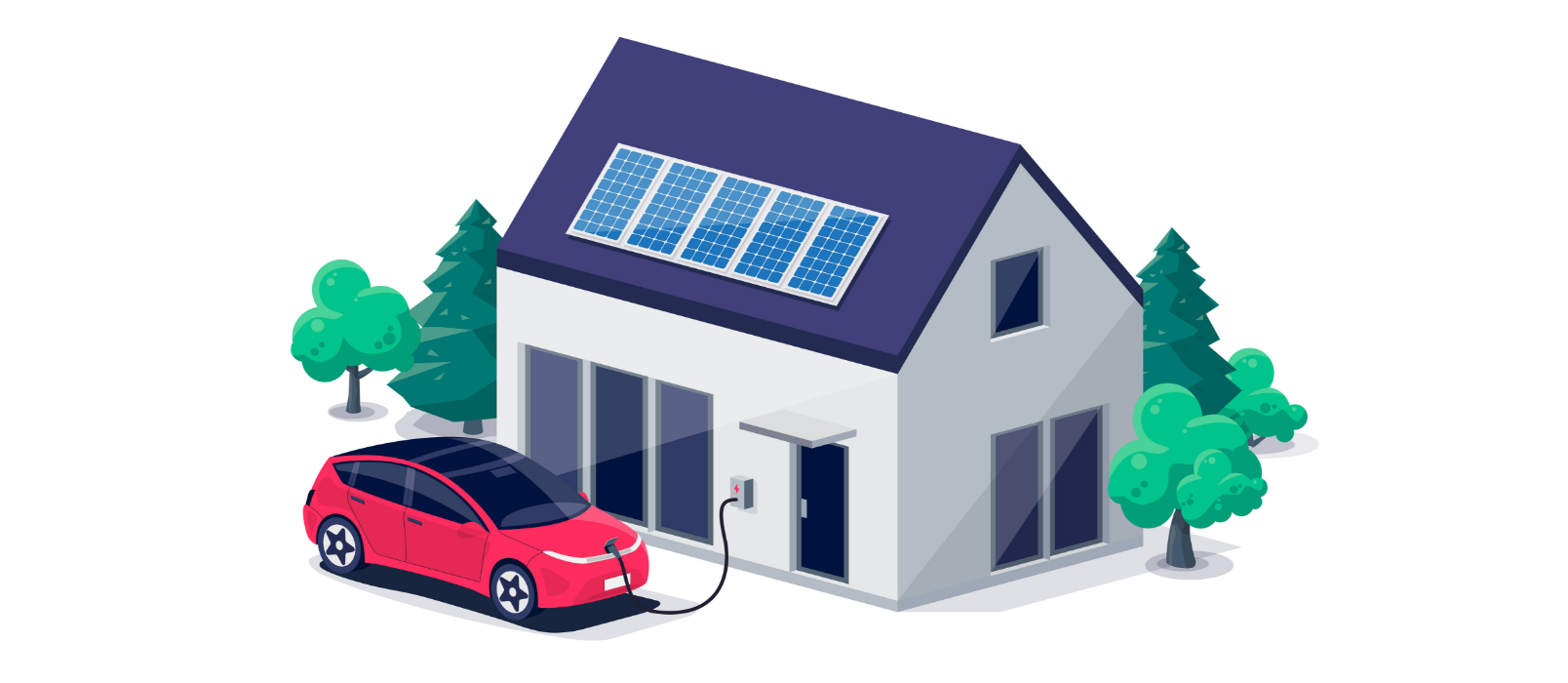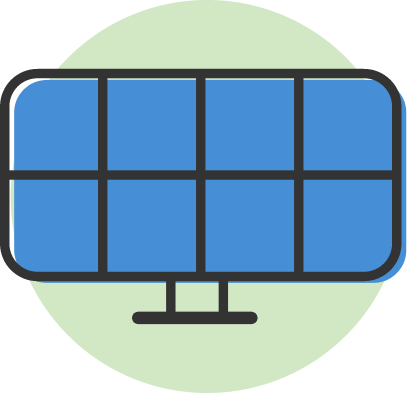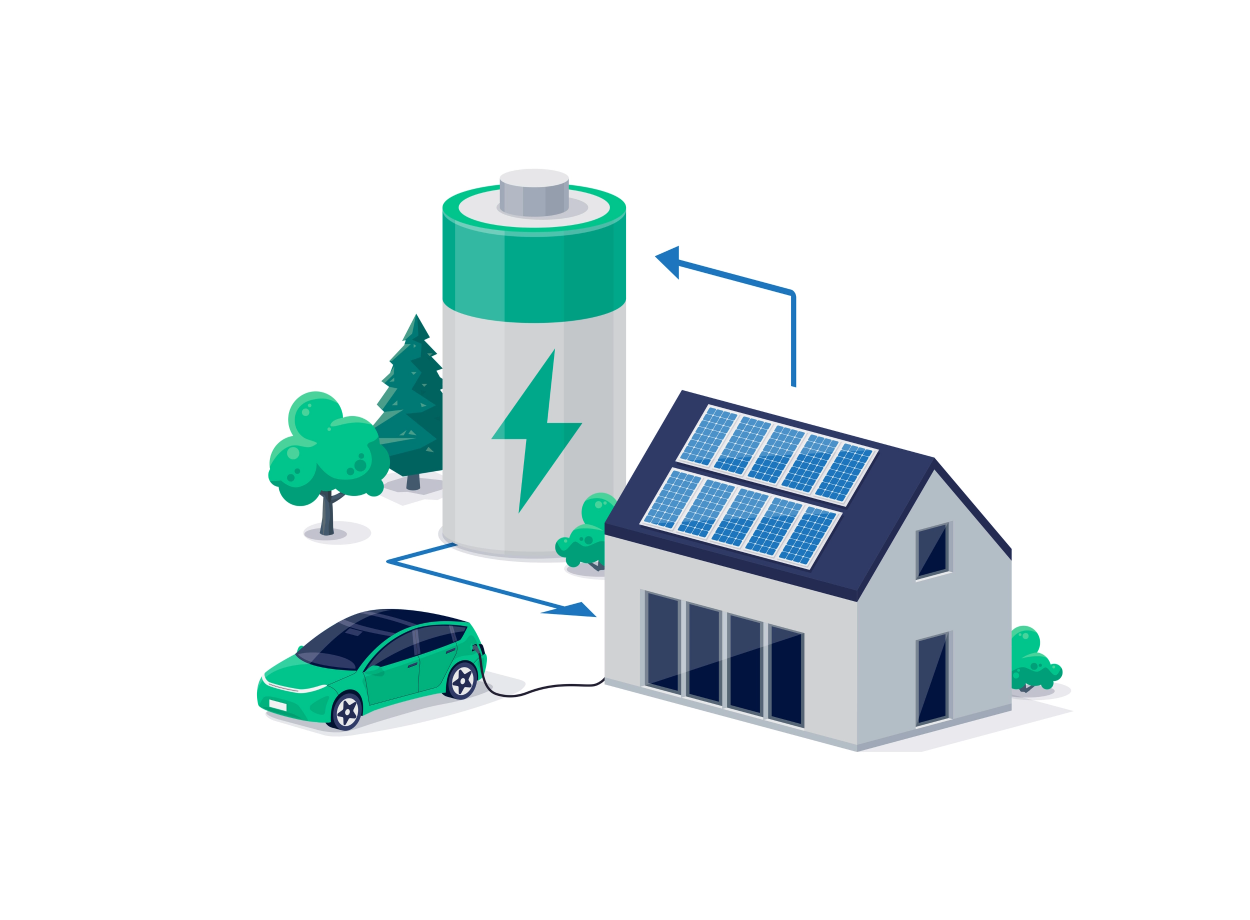Residential Solar
Ready to go green? Discover the benefits and considerations of switching to a residential solar system.
Want to take advantage of cheap, renewable, and clean energy? Learn about the benefits of powering your home with a residential solar system.
Did you know Australia has some of the best conditions for producing residential solar electricity? This form of energy offers countless benefits. Solar saves you money, reduces your grid reliance, and helps you protect the environment.

Why You Should Consider Residential Solar Power
Fitting your home with solar energy comes with plenty of perks—for you and the planet. Here are some of the benefits of a residential solar installation:
Less Grid Reliance and Lower Bills
Solar panels make you more self-sufficient. Outages never affect you, as you have your own source of clean energy. Residential solar also reduces your electricity bill. Once you install panels, they immediately begin producing energy to power your home.
Helps the Environment
The electricity generated by the grid mostly originates from unsustainable fossil fuels. Solar energy is clean, renewable, and has minimal impact on the environment and your health.
Earn Solar Rebates and Credits
You can receive credits known as feed-in tariffs if you export your surplus solar power back to the grid. Solar panel rebates are available until 2030 and can save you about $3,400 when purchasing a new system.
Low Maintenance
Residential solar panels need little upkeep to continue generating electricity. They last at least 25 years, if not more. Inverters may need to be replaced every 10–15 years.
Long-Term Investment with High Rewards
Most Australian residential solar systems are paid for within 4–7 years of installation—solely through electricity bill savings. Solar panels may also increase your home’s real estate value and make it more desirable to potential buyers.
A lot of people are overpaying on their electricity and gas bills. Are you one of them?
Tips For Choosing Your Residential Solar System
Tips For Choosing Your Residential Solar System
Here’s a brief guide to help you choose the right residential system:

REDUCE YOUR EMISSIONS
Choosing the Right System Size
The most common residential solar power system size for grid-connected homes is about 5–8kW. The optimal solar system size depends on several factors, including:
- Available roof space
- Average electricity consumption
- Budget constraints
REDUCE YOUR EMISSIONS
Choosing the Right Inverter
Inverters harness solar power, monitor performance, and prevent dangerous voltage. Here are the different types of solar inverters:
- String inverters
- Micro inverters
- Optimized string inverters
- Hybrid inverters
- Battery inverters

ENERGY STORAGE SOLUTIONS
Energy Storage (Batteries)
Have you ever heard of a solar battery? It helps you store your extra energy for later use.
When you convert to solar power, the inverter turns the sun’s energy into electricity. Whatever you don’t use gets wasted, or in some cases, you can sell it back.
However, for better energy efficiency, many invest in a storage device. The panels generate power when they have access to sunlight. You might need to purchase electricity from the grid at night or on cloudy days. Having a solar battery reduces your reliance on the mainstream power source.
Decide what your power needs are, and select from multiple options. Do you want to use stored energy for blackouts only, or are you looking to use it during the evenings?
Your unique energy efficiency requirements work best with specific products. Some batteries can power your home during blackouts, while others only store energy from a single day for usage on the same evening.
Are you aiming for an off-grid experience? Our energy storage solutions can make the transition smoother.
When selecting a solar battery, keep the storage capacity and discharge rates in mind. The product you need varies according to your usage requirements.

Frequently Asked Questions About Residential Solar Systems
Got any remaining queries? Check out our detailed answers to some of the most common questions about residential solar systems:
